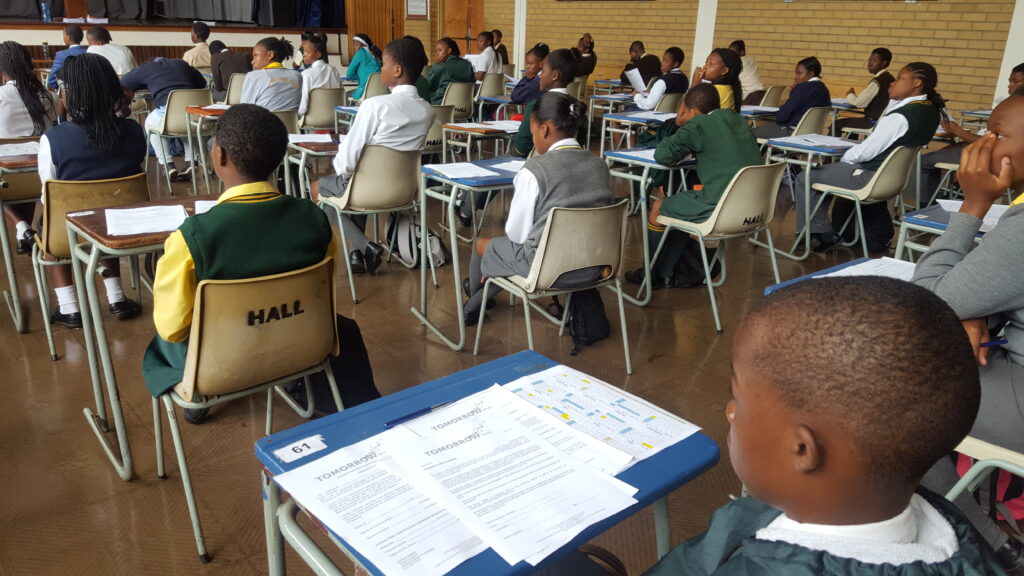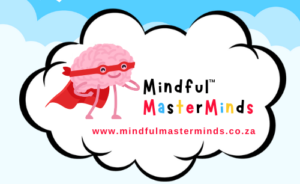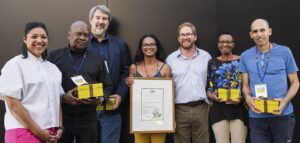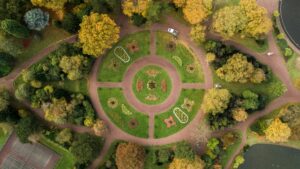Highly passionate about Education because she believes it is the only tool that will make a fundamental difference in our country, Taryn Rae is the CEO at Tomorrow Trust, a South African NPO that focuses on holistic educational programmes.
They prioritise education in STEM subjects and were also the first NPO to introduce learning through Virtual Reality for their learners.
Can you provide us with a brief overview of Tomorrow Trust’s mission and the specific educational programs it offers for orphaned and vulnerable children in South Africa?
Tomorrow Trust is a South African NPO that acknowledges the ongoing educational injustices, specifically for orphaned and vulnerable children and youth.
We understand that through accessing world-class programming, we can successfully navigate these children and youth to become conscious leaders of tomorrow. Tomorrow Trust provides holistic educational programmes from playground to professional through our Junior, Senior, Tertiary and Alumni Programme.
These holistic education programmes provide OVC with quality educational classes that build literacy and numeracy, psychosocial support, career enlightenment and digital access.
The current programmes that we have are:Holiday and Saturday School Programme (HSP): In this programme, we have the juniors (Grade R – Grade 7) and seniors (Grade 8 – Grade 12) and we offer supplementary educational support on Saturdays and during school holidays to enhance and build the academic ability of the learners we serve to ensure that they are prepared for and works towards achieving tertiary education. Learners are provided with transport to and from the classrooms at our partner schools. They are also provided with nutritious meals and equipment such as a laptop or iPad on which they engage in digital learning.
Tertiary Programme: We offer comprehensive bursaries to students completing various degrees at different institutions. Our goal is to support and help build independent, problem-solving, conscious young adults who will enter the workplace self-reliant and ready to lead a successful life. This is achieved through ongoing support provided by our inhouse Psychologists and various activities students experience throughout their time at Tomorrow Trust.
Alumni Programme: This programme comprises of all former students who graduated from the Tomorrow Trust Tertiary Programme. We currently have 421 Alumni, and we aim to create a lifelong community of alumni through increased opportunities with meaningful engagements and provide them with real-life skills that would set them apart in life and in the working world. Tomorrow Trust alumni are sort after, with 89% of them in employment, and only 32.9% of our graduates being unemployed.
Tomorrow Trust has been operational for 18 years. Could you share some key milestones and successes that the organization has achieved during this time?
One of the biggest milestones for us is that Tomorrow Trust has built its sustainability by prioritising diverse fundraising and partnership efforts.
We also have 408 Alumni of which 80% of them are in full-time employment or studying further. Over 900 learners completed their grade 12 with us with 75% of them getting a bachelor pass in the last 11 years.
Over the past 18 years, we have grown immensely and expanded to the Western Cape Province. We have also intruded ICT and have pioneered ICT in the non-profit space by creating a multi-faceted approach to integrate digital learning and access to orphaned and vulnerable children. Our successes come with every single child that we’ve impacted.
While making an impact, we encourage our Alumni to contribute towards our programmes once they are in employment to help us make the difference that we made in their lives, to other students who don’t have the means to study. We’ve raised R2.1 from our alumni giving back to impact education in South Africa.
How did the idea for Tomorrow Trust’s focus on holistic supplementary educational programs and bursaries for university students originate? What inspired the creation of an organization that addresses these specific needs?
Tomorrow Trust was by Kim Feinberg in 2005. Kim sat on the board for the Apartheid Museum and is a philanthropist, as well as an Ashoka Fellow. Kim had experience with non-profits for many years and founded an organisation called Tolerance Foundation that provided and shared stories about genocides with children and understanding within the context we live in.
Kim travelled to Mpumalanga where she met with a gentleman who created an AIDS orphanage while in conversation, he mentioned that the children are in a schooling system but after grade 12, there’s nothing for them to do and they don’t have access to opportunities. This moved Kim. She decided that she was going to fundraise for 10 students and create Tomorrow Trust so that they could get tertiary education.
To raise funds for these students, Kim approached 94.7 on the Morning Drive and they raised over R2 million to provide the students with fully funded bursaries. Later, she pitched to Cyril Ramaphosa and shared her vision for Tomorrow Trust and an empowered South Africa. Cyril Ramaphosa was moved by her vision and agreed to become Kim’s first Trustee for Tomorrow Trust when it was founded.
Not long after providing the 10 students with bursaries, Kim realised that the students faced a bigger challenge. The students didn’t know how to be outside of their environment and struggled to adapt to new environments away from their underprivileged communities. This impacted the student’s emotional well-being, and they needed psychosocial support which then became a pillar of Tomorrow Trust’s offerings.
Kim also realised that if we start earlier with supplementary support for learners from underprivileged communities, they will get better grade 12 results, resulting in a higher chance of them being accepted into tertiary institutes. Tomorrow Trust then implemented a Holiday and Saturday School programme to assist orphaned and vulnerable children to better their results while in school. The Holiday and Saturday School Programme started with grades 10, 11, and 12 and eventually started with Grade R.
In 2019, we were faced with the pandemic, and Tomorrow Trust started to look at digital integration to create student access to world-class programmes.
It’s impressive that Tomorrow Trust incorporates digital learning through Virtual Reality. Could you elaborate on how these technologies enhance the learning experience for the students involved?
In 2019, everyone started to talk about the 4th Industrial Revolution, and no one really knew what it meant. Tomorrow Trust started to investigate what that meant for the working world, for orphaned and vulnerable children, and how it shifted and changed society.
We started to ponder around the idea of technology since the evolution was bringing about digital advancements within society. We then decided to incorporate our SHIFT programme which is our ICT programme and this houses all of our digital components. We brought in robotics and coding in 2019. COVID then hit and it was clear just how quickly the evolution was upon us with how quickly we had all had to move towards embracing technology and communicating digitally.
While the world was advancing, orphaned and vulnerable children and disadvantaged communities would be left behind and this would create a bigger divide and a greater gap in terms of being able to become empowered, sustainable, and contribute to society. We decided to evaluate how we integrate different types of methodologies and access around digital learning for our learners and students.
Our cutting-edge approach is not only robotics and coding, but we also incorporate learning through AI and Virtual Reality to underprivileged learners so that they can embrace it and get access.
South Africa faces unique challenges in terms of education and social welfare. How does Tomorrow Trust tailor its programs to address these challenges and make a meaningful impact in the lives of the children and students it serves?
What makes us different from other organisations is that we look at how we incorporate a holistic framework to empower our students. We also create an ecosystem of collaboration amongst our children. We are very thoughtful in terms of how we create our programmes. We are people-centric so we understand the need and hear the voices of our children so that we can create programmes that are put in place that prioritise them and contribute to better education in South Africa
Tomorrow Trust has formed partnerships with several big corporate entities. Can you tell us more about these partnerships and how they contribute to the organization’s success?
Tomorrow Trust partners with various corporate companies that have a shared vision in terms of wanting a better South Africa and investing in the potential of the country. Our donors vary. We work with the Department of Social Development to provide access to their Grassroots organisations so that they can have access to our programmes so we can break the poverty cycle.
We also work with corporates like Mimecast which fund the ICT programme. Our other donor, First Rand Foundation helps us work with previously disadvantaged universities to provide access to funding for students.
Our funders are diverse and it’s important to note that to change a life, we need to do it together.
As the CEO of Tomorrow Trust, what are some of the biggest challenges you’ve faced in running and growing the organization? How have you overcome these challenges?
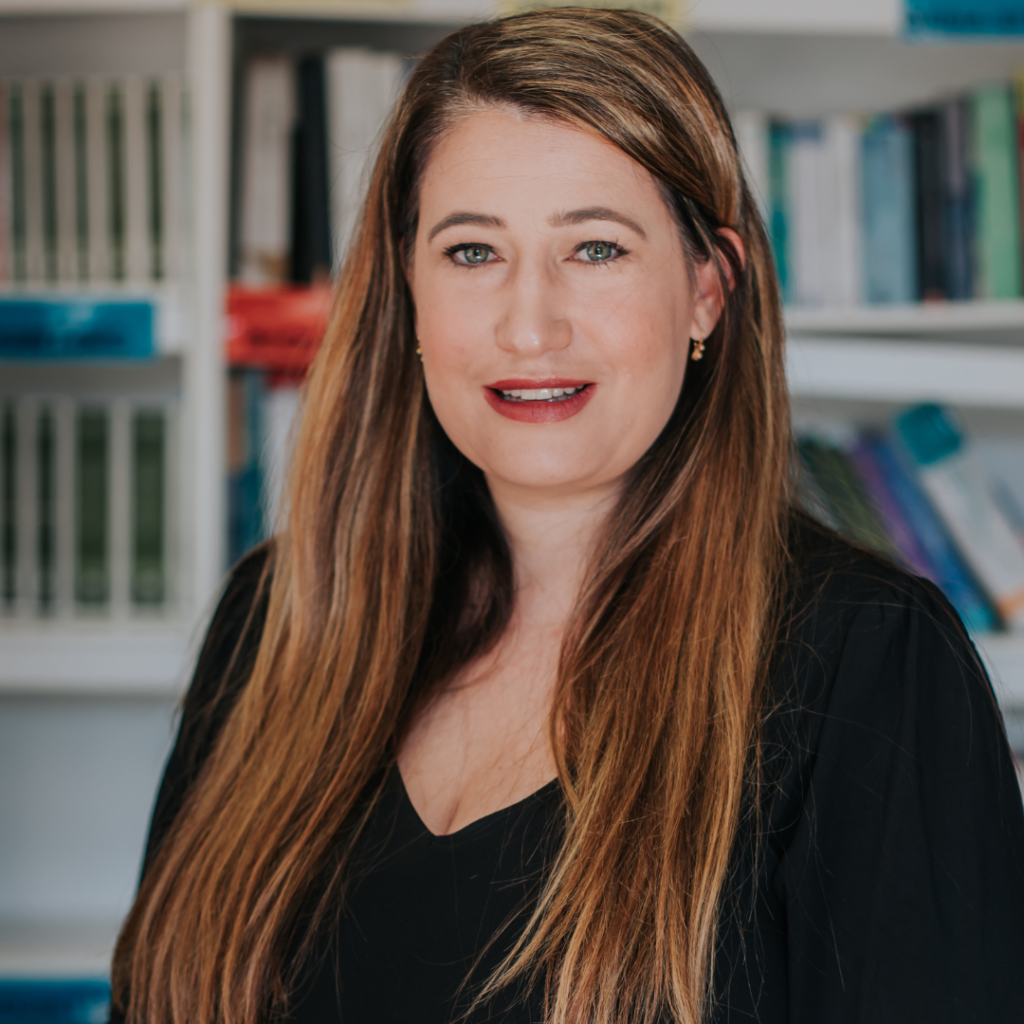
The fact that we are faced with an increase in the number of people to serve. After COVID-19, poverty increased. The gap between quality education and providing access has grown and as organisation, we’re just trying to close that gap. But, it’s trying to get many partners and donors to buy into our belief that has been a challenge.
Another challenge is the current job market. Our alumni struggle to find jobs as the job market has become smaller due to an economy that hasn’t grown. We trying to teach alumni to create their own jobs through entrepreneurship and learning.
Could you share some insights into your personal journey and the leadership qualities that have contributed to your success?
I have had the opportunity to be led by both a male and female leader. My first experience was under a woman leader who taught me the fundamentals of delivery, and professionalism and she shared a space where you could fail and learn. That contributed to who I am today. It was great to have a woman that I could aspire to be.
We had a male leader who brought the human aspect to the job. And, although the woman leader was harder, the male leader brought in a softer, human touch. He made me look at a person as a human and how you can connect with them. I’ve been fortunate to be exposed to different leadership styles and I have adopted things according to how I’ve grown and adapted my own leadership style that incorporates delivery, acceptance, and fostering human relationships.
When it comes to my team, I try my best to motivate them and build strong relationships with them. I encourage team activities and I prioritise employee wellness because I know that if I can pour into my team, they are then fulfilled, and they can do their job to their best ability and pour into the cups of the learners and students who we serve.
What advice would you give to other women who aspire to make a difference in their communities through nonprofit work or leadership roles?
Often, women are conditioned to doubt themselves. Believe in your knowledge, insights, and instincts. Your perspective is valid and valuable. Once you have confidence in yourself, try your best to find your community. Surround yourself with a support system who are mentors, peers, and friends – people who believe in you and challenge you.
I would also advise women to negotiate fearlessly and challenge stereotypes. Don’t be boxed into societal expectations of what women should be. Make sure that you define your leadership style on your terms. Although you need to be strong, fearless and confident, also learn to embrace vulnerability. Authentic leadership is rooted in genuine and true connection.
Lastly, lift while you rise. Seek ways to mentor and support your team and remember that a true sign of leadership is not just rising but it’s also bringing others along.
Looking ahead, what are Tomorrow Trust’s goals and aspirations for the next few years? How do you envision the organization’s continued growth and impact?
I would like to grow our community and partners through collaboration and conversations. I would also like for Tomorrow Trust to not only grow our beneficiaries, but we should also become an organisation that focuses on growing its people in-house so that if they ever leave, we are contributing to the greater good of the NGO space with resilient and powerful people that can influence change in society. As I’m going through this leadership journey, I always come back to investing in my team and staff so that they can pour into the community. It’s very important that we start at home and build internally for the greater good.

